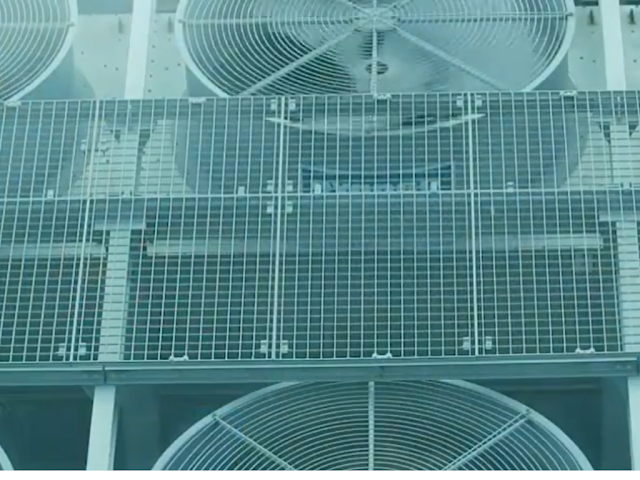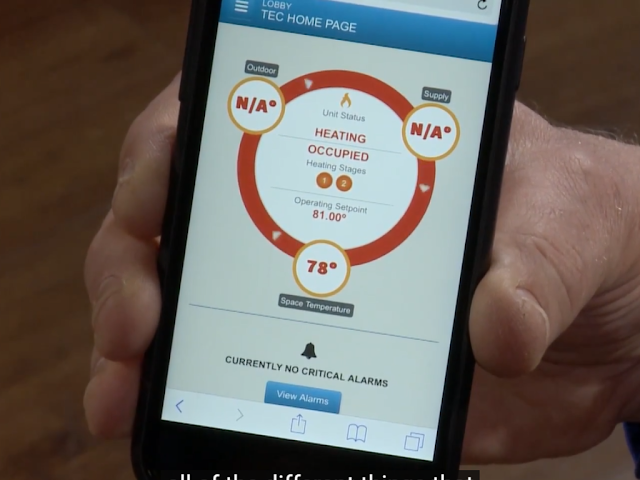As an HVAC expert, I'm here to tell you that the HVAC system is one of the most important elements in building design. An efficient HVAC system can reduce energy costs and provide maximum comfort throughout a space when properly designed. Innovative HVAC design is key to maximizing energy efficiency while providing optimal climate control and air quality.
 |
| Innovative HVAC Design |
Here are some innovative HVAC design strategies that can help maximize energy efficiency:
1. Proper insulation
Proper insulation is vital in reducing heat loss and gain in the home. This helps in ensuring that the HVAC system is not overworked, leading to energy efficiency. Using spray foam insulation or adding extra insulation to the attic can ensure that the home retains conditioned air.
2. Zone control
Zone control enables the system to focus on occupied spaces or rooms, saving energy by not heating or cooling unoccupied spaces. Using programmable thermostats, which you can set based on room usage, can help the system conserve energy.
3. Smart thermostats
Smart thermostats have sensors that can detect when no one is in the room and optimize the HVAC accordingly, leading to further energy savings. They also allow for remote access, meaning you can control your heating and cooling anywhere.
4. Proper sizing
Proper sizing of the HVAC system is key to maximizing its efficiency. An undersized system will have to work harder to keep the home cool or warm, while an oversized system will lead to energy wastage. It is important to consult an HVAC professional to ensure that the sizing is right for your home.
5. Energy Star-rated systems
Energy Star-rated systems are designed to be more energy-efficient and reduce energy usage by up to 30%. Upgrading to an Energy Star-rated system can help reduce energy bills significantly.
6. High-efficiency air filters
Air filters keep dirt, dust, and other particles out. High-efficiency air filters ensure air flows efficiently through the HVAC system, leading to energy savings.
7. Regular maintenance
Regular HVAC system maintenance can help identify issues early and ensure that the system is working efficiently. This includes changing filters, cleaning ducts, checking refrigerant levels, and inspecting electrical components. A well-maintained HVAC system can save energy and extend the system's life.
9. Use Smart Control Systems
Smart control systems are becoming increasingly popular in HVAC design, as they allow you to automate your heating and cooling systems and adjust them based on occupancy and weather conditions. These systems can help you save energy by reducing heating and cooling demands when no one is occupying the space.
How to make my HVAC more efficient
There are several ways you can make your HVAC (Heating, Ventilation, and Air Conditioning) system more efficient, which can ultimately help you save money on your energy bills and reduce your carbon footprint. Here are some tips:
 |
| How to make my hvac more efficient |
Change your air filters regularly: Dirty air filters can restrict airflow, forcing your HVAC system to work harder to maintain the desired temperature. Check your air filters monthly and replace them every 3 months or more frequently if needed.
Install a programmable thermostat: A programmable thermostat allows you to set different temperatures for different times of the day, so you can reduce energy usage when you're away from home or asleep.
Seal air leaks: Leaks around windows, doors, and other openings can let the hot or cold air escape, making your HVAC system work harder to maintain the desired temperature. Use weather-stripping, caulking, and other sealing techniques to prevent leaks.
Maintain your HVAC system: Regular maintenance, cleaning coils, checking refrigerant levels, and lubricating moving parts can improve the efficiency of your HVAC system and extend its lifespan.
Upgrade to a more energy-efficient system: If your HVAC system is old or inefficient, consider upgrading to a newer, more energy-efficient model. Look for systems with a high SEER (Seasonal Energy Efficiency Ratio) rating.
Use ceiling fans: Ceiling fans can help circulate air and reduce the workload on your HVAC system. Ensure your ceiling fan rotates clockwise in the winter to push warm air down and counterclockwise in the summer to create a cool breeze.
By following these tips, you can make your HVAC system more efficient, reduce energy consumption, and save money on utility bills.



